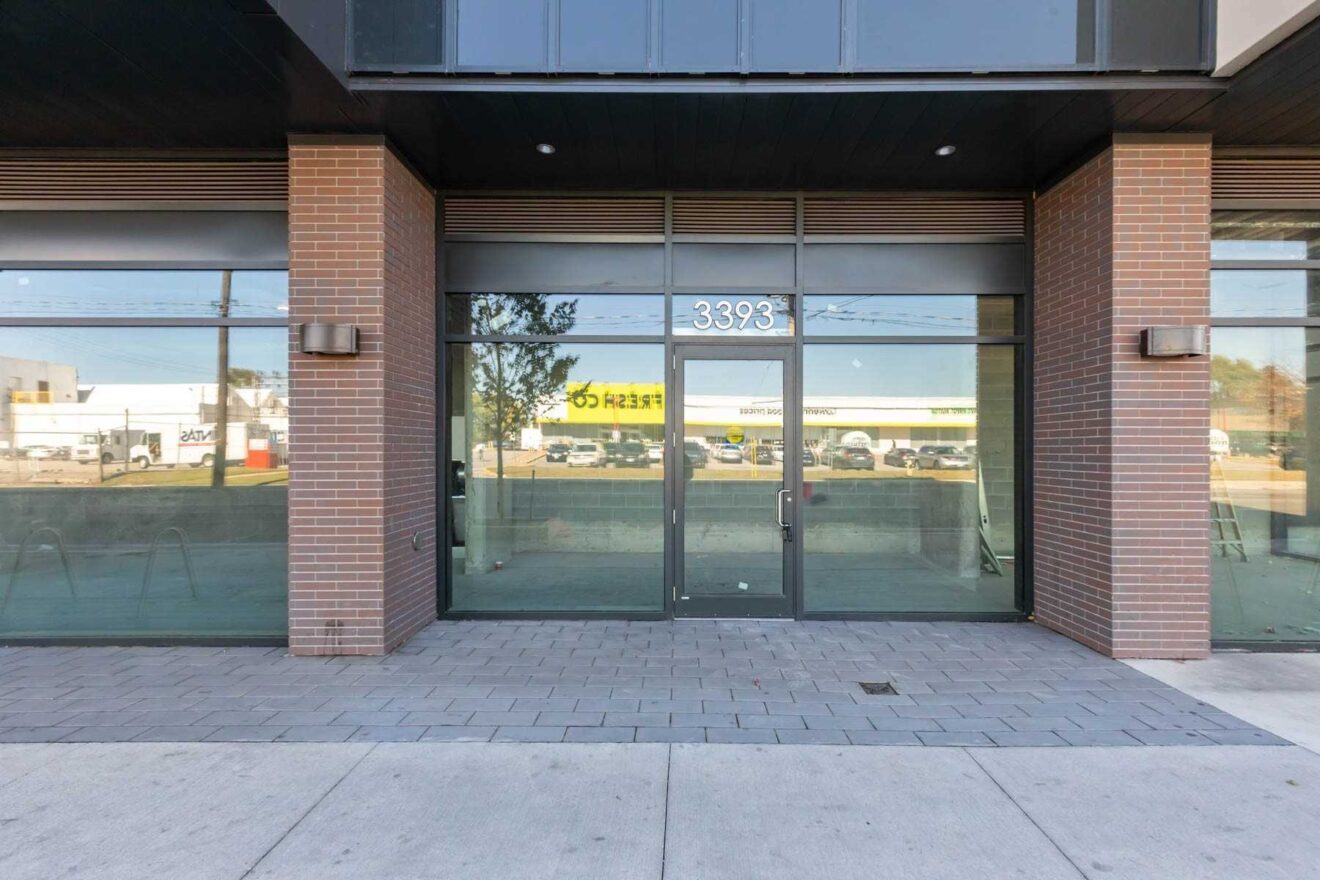Navigating the intricacies of lease agreements and renewals can be one of the most time-consuming and detail-sensitive responsibilities for property owners. From staying compliant with tenant laws to ensuring consistent rental income, the scope of work extends far beyond signatures and dates. This is where property management services step in as a powerful asset, taking on the legal, operational, and administrative weight so owners can focus on broader investment strategies. Companies like InTrust. bring structure, efficiency, and peace of mind to an otherwise complex process.

Legal Compliance and Risk Mitigation
Lease agreements are legally binding documents that require precision, awareness of current laws, and thorough execution. State, municipal, and federal regulations evolve over time, and non-compliance can lead to severe financial and legal consequences.
Professional property managers are trained to draft and update lease documents by the latest rental laws. This includes incorporating fair housing clauses, ensuring clear rent escalation terms, defining maintenance responsibilities, and properly stating conditions around eviction. By having experts handle this critical task, property owners shield themselves from legal vulnerabilities that often result from ambiguous clauses or outdated language.
Renewals carry their legal nuances. Adjusting lease terms without violating rent control statutes or tenant rights requires specific expertise. A seasoned property management team anticipates these legal intricacies and proactively navigates them, significantly reducing risk exposure.
Accurate Lease Structuring and Customization
Every property, tenant, and location presents its own set of variables. Standard lease templates rarely meet the nuanced requirements of professional real estate operations. Property management professionals go beyond off-the-shelf forms, crafting leases tailored to the specifics of the property and the owner’s objectives.
Custom clauses regarding pet policies, smoking restrictions, late fees, and access to shared amenities are structured to ensure enforceability. These customizations not only help owners avoid disputes but also create a clear foundation for tenant behavior and expectations.
During renewal phases, management teams assess past tenant behavior, adjust terms accordingly, and renegotiate to reduce vacancy and maximize retention. Lease customization at this stage may include rent adjustments, updated maintenance terms, or extended renewal incentives—all backed by legal prudence.
Maximized Occupancy and Tenant Retention
Handling renewals in a timely and strategic manner plays a crucial role in maintaining high occupancy rates. Property managers begin the lease renewal process well in advance, giving tenants ample time to consider their options and minimizing uncertainty. They utilize tools like rent comparables, property performance data, and tenant feedback to determine optimal renewal offers.
More importantly, property managers cultivate ongoing relationships with tenants. This relational foundation makes the renewal conversation more personal and less transactional. When tenants feel heard and valued, they’re more likely to stay, reducing turnover costs and maintaining consistent cash flow.
Lease management is not a one-time event but part of a broader retention strategy. Professionals ensure seamless transitions between terms, so tenants don’t feel a sudden shift in service quality, expectations, or policies.
Market-Aligned Rent Adjustments
Renewal periods offer a key opportunity to reassess rent values. However, adjusting rent without alienating tenants or violating regulatory limits is a fine balance. Property management experts study local market conditions, analyze comparable rents, and review the historical performance of each unit before making recommendations.
This ensures that rental rates remain competitive while still aligning with market growth. Rent hikes are delivered with proper notice, tact, and justification, improving tenant buy-in and avoiding disputes.
On the other hand, when markets soften, property managers might advocate for stable rents or modest increases to preserve tenancy. Their strategic advice allows property owners to make informed decisions that are financially and operationally sound.
Efficient Documentation and Record-Keeping
Every signed lease, amendment, or renewal adds to a growing portfolio of critical documents. Misplaced or improperly filed agreements can lead to legal complications, missed deadlines, and financial errors.
Property management systems include robust documentation tools that store leases securely and allow for easy access when needed. Each tenant file is carefully maintained, often with timestamped entries, automated reminders, and integrated compliance checklists.
This kind of document integrity is essential when questions arise over deposits, maintenance responsibilities, or early terminations. It also proves invaluable during audits, insurance claims, or legal disputes, offering a clear and traceable history of agreements.
Timely Communication and Tenant Transparency
Lease agreements and renewals are only as effective as the communication surrounding them. Missed messages, vague emails, or poorly timed reminders can delay decisions and foster tenant frustration.
Property managers operate on well-developed communication protocols. They send notices well ahead of expiration dates, follow up on renewals, and offer clear summaries of updated terms. Whether via digital portals, email, or phone calls, communication is timely, consistent, and respectful.
Transparent discussions around new rent amounts, policy updates, or additional clauses reduce uncertainty. Tenants appreciate the professionalism and responsiveness, which enhances their overall satisfaction with the property and increases the likelihood of a renewed lease.
Centralized Oversight for Multi-Unit Portfolios
Owners managing multiple units or properties face an exponential increase in administrative burden. Each lease has its own start and end dates, terms, tenant requests, and local regulatory considerations.
Property managers bring centralization to this complexity. Through scheduling systems, automation tools, and experienced teams, they keep every renewal and lease cycle on track. Owners receive summaries of approaching expirations, occupancy trends, and potential vacancies, allowing for proactive decision-making.
This oversight reduces the chances of forgotten renewals, overlapping terms, or lost rent due to poor planning. It also enables property owners to scale without losing control over the leasing process.
Consistent Enforcement of Lease Terms
One of the most difficult parts of property ownership is enforcing lease terms without bias or emotional involvement. Whether it’s collecting late rent, handling noise complaints, or following through with lease termination, consistent enforcement is critical to maintaining community standards and property value.
Property management professionals serve as neutral intermediaries. They apply rules uniformly across all tenants, which builds fairness and predictability into the living environment. Their ability to document violations, send formal notices, and follow legal channels reduces confrontation while protecting the owner’s interests.
When lease terms are enforced properly, other tenants feel more secure, and overall property harmony improves. This reinforces a positive leasing experience, increasing tenant satisfaction and retention.
Time and Energy Savings for Property Owners
Leasing involves more than drafting contracts. It requires coordinating meetings, negotiating terms, executing documents, following up, filing, and responding to questions. For owners with other professional commitments or multiple investments, these tasks can quickly become overwhelming.
By delegating lease and renewal responsibilities to property managers, owners reclaim their time and reduce stress. The team handles everything from start to finish, reporting only on key milestones and decisions that require owner input.
This allows property owners to focus on strategic growth rather than daily operations. Their portfolio is managed efficiently without sacrificing oversight or profitability.
Improved Tenant Onboarding and Exit Experience
Lease agreements mark the beginning—and often the end—of a tenant’s relationship with a property. A smooth onboarding experience starts with a well-prepared, clear lease. Professional managers ensure tenants receive all required disclosures, walkthrough checklists, and payment schedules.
At move-out, property managers coordinate final inspections, key returns, and deposit settlements according to the lease. This eliminates guesswork and builds a positive impression, which can influence future reviews and referrals.
The lease experience shapes how tenants perceive property professionalism. When handled smoothly, it establishes confidence and reinforces the reputation of the owner and the management team.
Tailored Negotiation Strategies During Renewals
Each renewal negotiation is an opportunity to retain value or secure better terms. Property managers consider tenant payment history, property maintenance habits, and lease length preferences when preparing offers.
For reliable tenants, they might offer incentives for multi-year commitments. For those with a history of complaints or late payments, they’ll build in more protective clauses or opt not to renew.
This strategic approach ensures every renewal works in favor of the owner’s broader goals—be it long-term stability, higher returns, or a better tenant mix.
Alignment with Investment Goals
Lease structures and renewal timelines should reflect the financial and operational goals of the property owner. For example, short-term leases might support a strategy focused on flexibility and market responsiveness. Long-term leases could align with stable cash flow objectives.
Property managers consult with owners to align leasing activities with these investment frameworks. They provide feedback on how lease terms impact maintenance cycles, revenue projections, and tenant demographics.
This strategic integration turns lease management from a task into a tool that supports long-term asset performance.
Conflict Resolution and Mediation
Lease disputes are inevitable, whether they concern noise, deposits, repairs, or rent escalations. The way these are handled can either de-escalate or worsen tenant relations.
Professional managers bring trained negotiation and conflict resolution skills to the table. They act as intermediaries who protect the owner’s interests without escalating tensions unnecessarily.
Their ability to mediate conflicts with documentation, empathy, and policy adherence helps resolve issues quickly, preserving tenant goodwill and reducing the likelihood of legal escalation.
Enhanced Property Reputation
Word travels fast in the rental market. Tenants talk—especially about their experiences with lease negotiations, renewals, and move-outs. A poorly handled lease process can tarnish a property’s reputation, while a seamless and respectful experience becomes a point of pride.
Professional management ensures consistency across every tenant interaction. This results in higher ratings, better reviews, and increased word-of-mouth referrals. Prospective tenants often view lease structure and communication as an indicator of what the tenancy experience will be like.
With expert handling, leases become brand touchpoints that influence market perception in a positive way.
Advanced Technology and Automation Integration
Modern property management firms integrate technology into their lease and renewal processes. Automated reminders, digital signature platforms, tenant portals, and cloud-based storage all contribute to a smoother and more transparent experience.
This tech-driven approach reduces manual errors, speeds up execution, and ensures timely renewals. Owners benefit from instant updates, real-time metrics, and streamlined oversight—all without being involved in the day-to-day details.
Technology, when paired with human expertise, creates a leasing system that is fast, reliable, and easy to scale.
Why Choose InTrust.?
At InTrust., we bring more than task execution to the leasing process—we deliver strategic leasing leadership. Our approach blends legal precision, tenant relations, and investment alignment to ensure that every lease and renewal serves your broader property goals. We don’t just fill spaces; we protect value, reduce risk, and foster lasting tenant relationships.
From the first lease signing to the final renewal, we take on the details so you can focus on growth. Whether you manage a single unit or a multi-property portfolio, InTrust. offers the expertise, infrastructure, and reliability you need to operate with confidence and consistency.
Let leasing be a strategic advantage—not an operational burden—with InTrust. managing every step.

Questions About Commercial Real Estate?
See the services we offer to learn how we can help you achieve more with your asset.
Learn More

